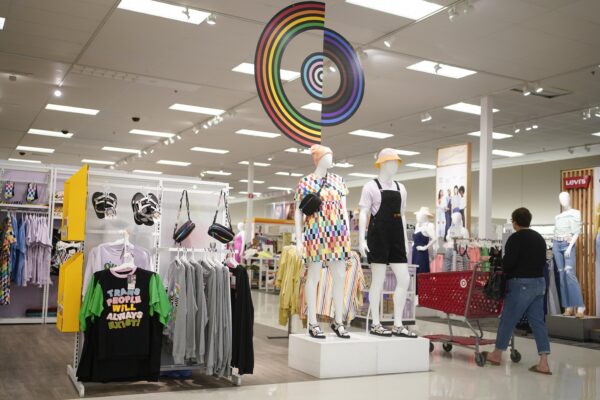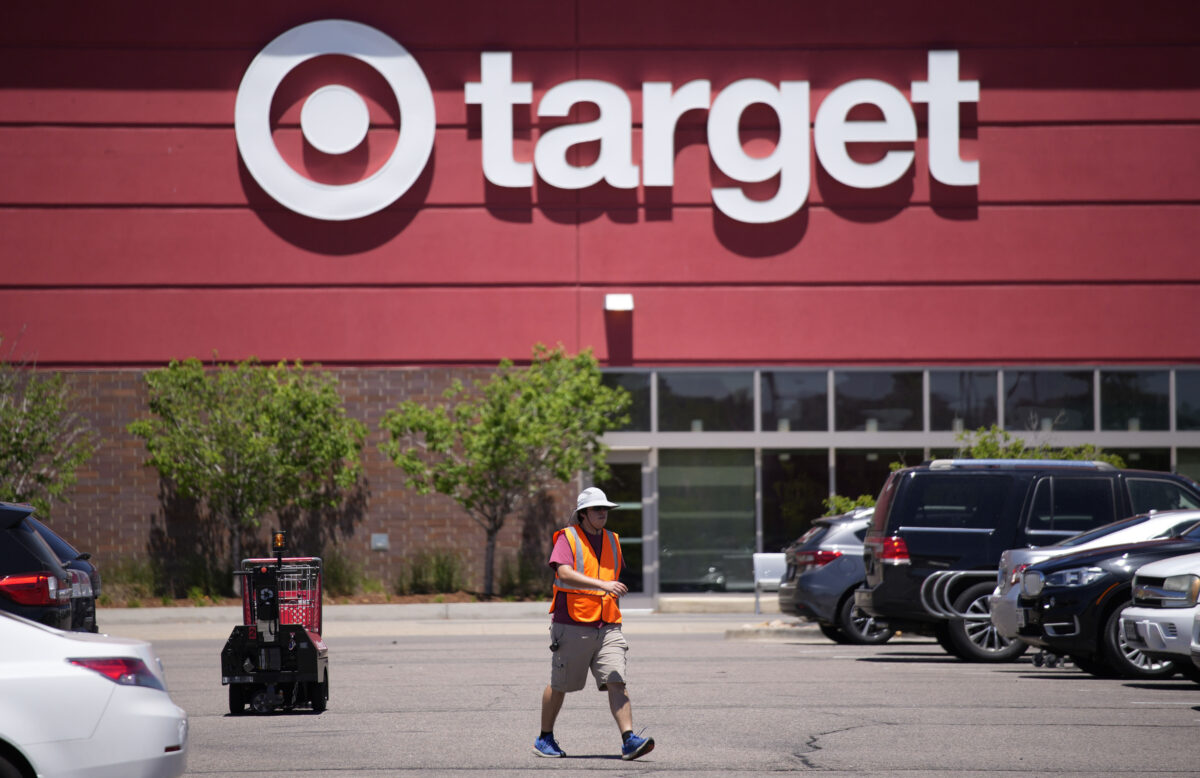A former Target executive claimed that there was one item that sparked widespread boycott calls against the big box chain.
Former Target Vice Chairman Gerald Storch said in a Sunday interview with Fox News that a number of retailers, including Target, have sold pro-LGBT merchandise over the past several years and claimed that “everybody carries that stuff.”
But he noted that Target appeared to go a step further this year by carrying a “tuck swimsuit” that targets transgender people. In mid-May, conservative commentators made note of the swimsuit and claimed that it was being marketed for children, but Target officials pushed back and said that the item was only sold for adults.
“I’ve never seen a case where one item, that tuck swimsuit, that’s really what made the difference versus the competitors. That’s where the big mistake [was] made,” Storch told the outlet.
Some pointed out that Target’s website sells a range of LGBT and pro-transgender merchandise, including “pride” clothing targeting infants and small children. Target is also selling children’s books that instruct them on how to use transgender pronouns.
“I cannot state enough how important is for people to choose not to shop at Target. There has never been a company that has been more pro-transgenderism than Target,” Daily Wire commentator Candace Owens wrote last month.
Former Fox News host Megyn Kelly, meanwhile, criticized the chain for selling the “tuck” swimwear. Target, she said, “decided to willingly partner with this clothing manufacturer to make Pride month gear that includes bathing suits that are quote ‘tuck-friendly’ that have extra material … which no woman needs.”
In the midst of the backlash, the company last month confirmed that it pulled some items from shelves and moved displays.
“Since introducing this year’s collection, we’ve experienced threats impacting our team members’ sense of safety and well-being while at work,” the firm said, without elaborating on the specific threats. “Given these volatile circumstances, we are making adjustments to our plans, including removing items that have been at the center of the most significant confrontational behavior,” it also said.
Since the boycott against the Minneapolis retailer was launched in mid-May, the company’s stock has declined from nearly $161 per share to about $133.22 per share as of June 2.
“Target stock has certainly been performing poorly, off 11 percent year to date. So that’s not good, and certainly, this boycott of the whole issue here isn’t helping. It’s very distracting to have that going on in the business. But there are more fundamental concerns with that, with the environment, with the consumer, and with the business here,” Storch noted.
“The consumer is feeling very stressed, very stressed by the environment, by inflation, and Target is known as the upscale discounter. So it’s not good to be the upscale discounter at a time when the consumer doesn’t have a lot of money to spend. So they’re migrating more to Wal-Mart, and that’s a huge problem,” Storch added.
The former executive then claimed that the “boycott is part of the problem” but claimed that investors are likely “more concerned with the fundamental business issues” at play. But he noted that Target’s executives “certainly didn’t handle this well, either going in or trying to deal with it on the way out. But I think over time, this is not going to be a big issue for them,” he said.

Some conservative influencers, however, have said that the boycotts against Target, Bud Light, and several other major brands appear to be a cultural shift against corporations’ pro-LGBT marketing campaigns. Bud Light, for instance, has seen a significant drop in sales on a weekly basis after it decided to make a beer can with Dylan Mulvaney, which was promoted by the transgender activist and influencer on social media.
Last month, Sen. Ted Cruz (R-Texas) said that there may be a “cumulative effect” of Disney, Bud Light, and Target boycotts. He said that inside Target’s leadership structure, “they’re saying, we don’t want to be Bud Light. We don’t want to be Bud Light.”
“Well, you know what, the next company is gonna say, ‘We don’t want to be Bud Light or Target. We don’t want to be Bud Light or Target.’ That starts to get really powerful,” he remarked.
And last week, Target’s stock was downgraded by a JPMorgan analyst, who cited “too many concerns” with the retail giant.
“We continue to believe that the consumer is broadly weakening while the share of wallet shifts away from goods (51 percent of [Target’s] sales) is ongoing,” wrote JPMorgan analyst Christopher Horvers, reported by MarketWatch.
“While still positive on a [three-year] basis, [Target] has been giving back share on a [one-year] view, and we believe this share loss could accelerate into back to school and linger into holiday given consumer pressures and recent company controversies,” he added. “This could turn [Target’s] traffic negative after an impressive run of 12 consecutive positive quarters.”
The Epoch Times approached Target for comment on Sunday.


















































